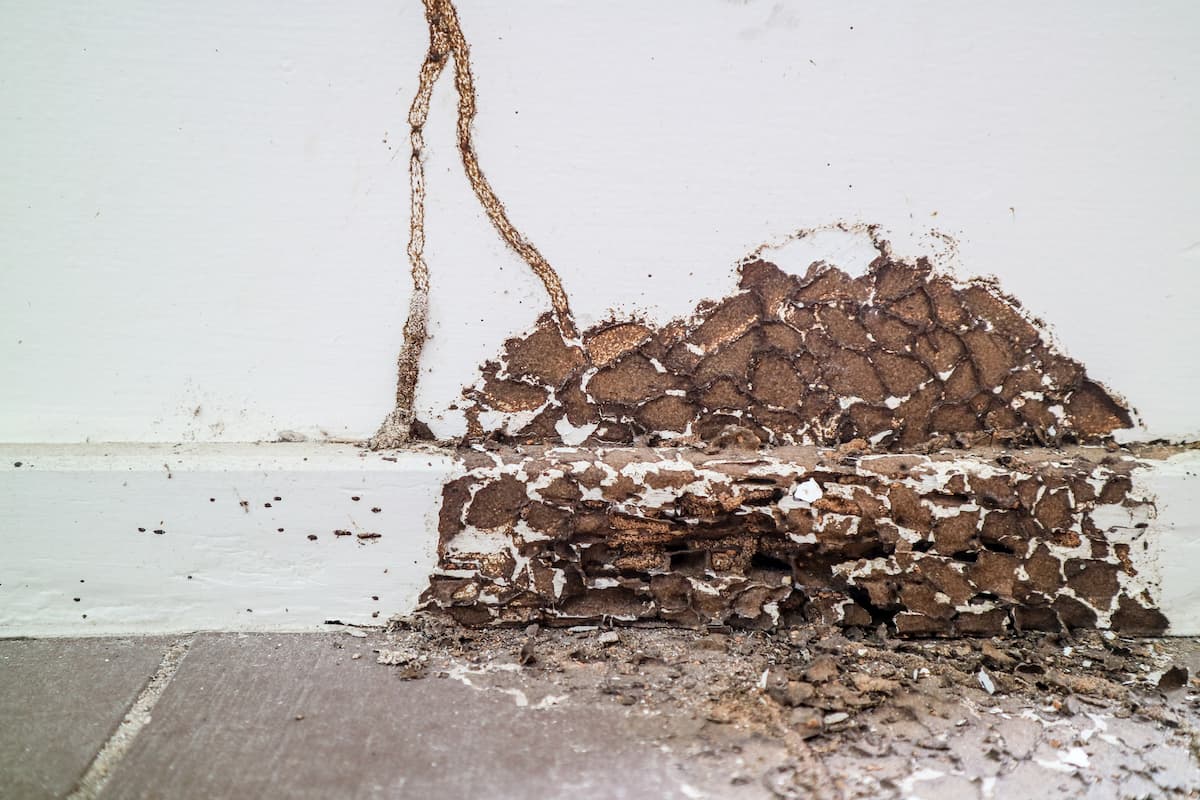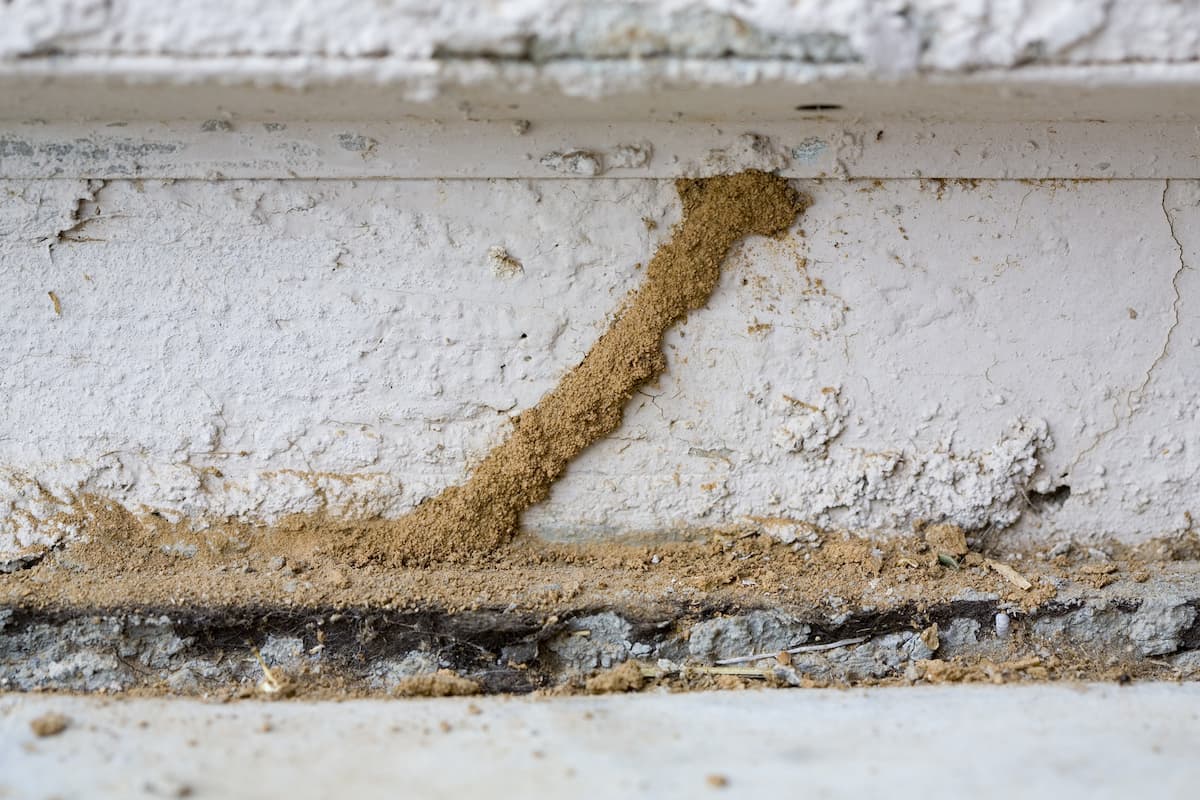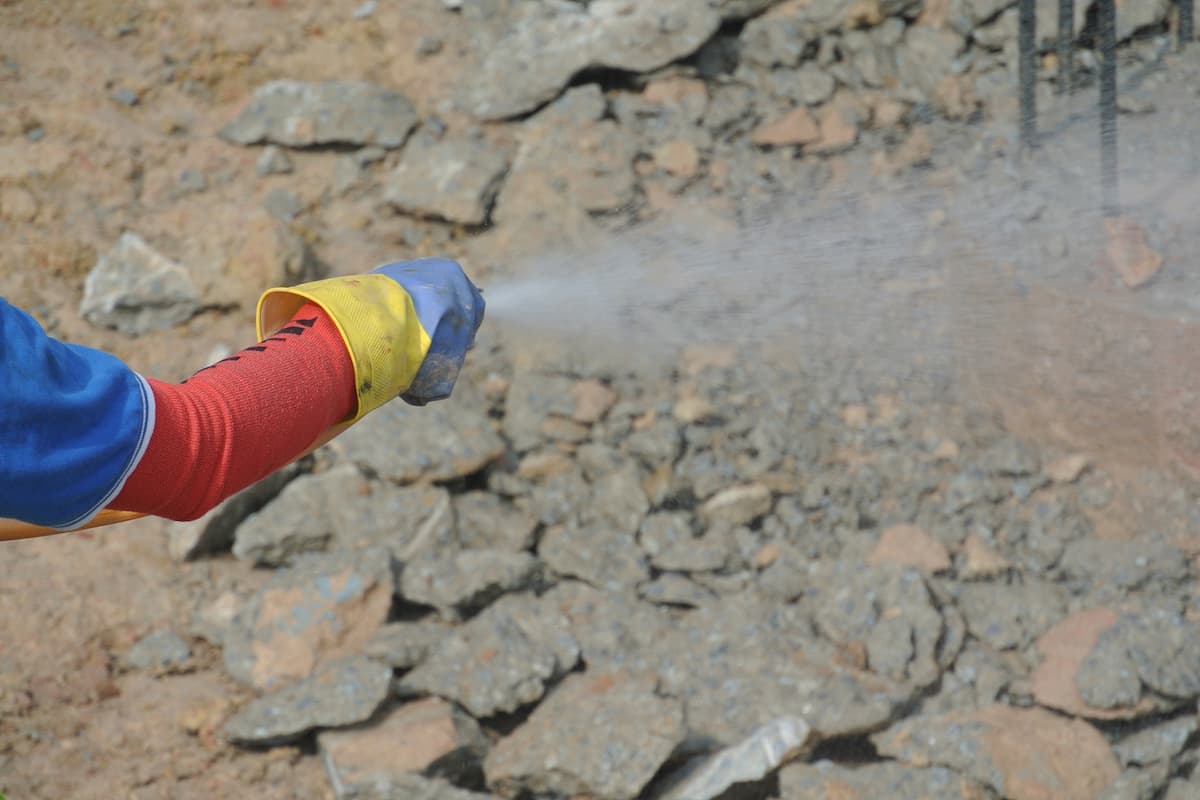Are Termites Bad for Your House?
Have you seen signs of termite damage recently?
You might wonder, are termites bad for your house, and what do you need to do if you have them?
Termite damage to your home can be extensive. This is because they often chew the wood that makes up the structural elements of a property, and because they are so unnoticeable, it is often hard to see the damage until there is a lot of it.
We will explore what types of damage termites tend to do, how to recognize termite infestations, and how to address them.
Do Termites Cause Damage to Houses?

Yes, termites can cause an exceptional amount of damage to a house. They attack wood, often meaning that they can damage the main structures of the house, gnawing away at beams and support struts and weakening them without being seen. They can eat:
- Wood
- Wallpaper
- Wood-based products
- Paper
- Cardboard
- Wooden furnishings
- Books
One of the biggest dangers of termites is how easy it is to miss them.
They are very rarely visible inside the home. They stay within the walls and often live beneath the house. They are also quiet and don’t leave any obvious signs of their presence.
You are unlikely to hear, see, or smell termites, even if many of them exist. Unfortunately, that may mean you have an infestation long before you become aware of it, even if you are relatively vigilant and keep an eye out for termites.
There will sometimes be signs, such as termite wings or discarded pellets, so make sure you familiarize yourself with these in case they are present in your home.
Because termites are so invisible, they will often do significant damage before the homeowners realize they are even present. This means that termites are a pest you should constantly be looking for and have a plan of action ready.
What Sort of Damage do Termites do?
Termites will attack the wood in your home. They are thought to be particularly attracted to homes that contain lumber like pine and spruce.
There are many kinds of termites in the United States, with over 2,300 species, but it is mostly the foraging types that attack people’s homes.
Because their colonies tend to be extensive and can eat a surprising amount compared to their size, termites can quickly do much damage. For example, a single colony may have millions of individuals inside it, and it is thought that a large termite colony can eat around 11 pounds of wood in a month.
That means that the termites could eat about 33 pounds of wood in just three months, enough to reduce the amount of wood supporting your home significantly.
Termites can cause structural issues, including doors that won’t close, cracking walls, bubbling paint, foundation problems, and weak flooring.
In some cases, this can be dangerous because termite damage will compromise the strength of your home and may put it at greater risk of falling.
Sometimes, the damage may be more cosmetic and less dangerous, but it could still be costly to repair.
How do You Know if You Have Termites?

Unfortunately, it can be tough to tell if you have termites. If they are hiding inside the walls of your house, you aren’t going to see them frequently, and if the damage is all done inside those walls, you won’t know it is happening.
Termites swarm, but they only do this once their colony is established in spring.
If you see a swarm, the insects may have been feeding inside your home for at least 12 months, and it’s much more likely that they established themselves in your home 3 to 5 years ago. During this time, they will likely have significantly damaged your home.
You may find that the floors are compromised, the walls are unsound, and the whole house is under threat. If this happens, you need to get an expert to assess the damage as soon as possible.
To avoid this, it’s a good idea to assess your home regularly. A pest expert may be able to determine whether there are termites by looking for subtle signs that an inexperienced eye would miss.
Using an expert could save you thousands in repair bills because you can deal with the termites early rather than when the damage has spread.
What Are The Other Risks?
A few other risks are associated with having termites in your home in the long term. One significant risk is that termites can sometimes chew through electric cables. The cables aren’t food, but they may eat them while searching for food.
This will cause wiring damage, malfunctions, and possibly even a fire risk–so you must take it very seriously.
Termites can’t sting, and they don’t generally bite humans. However, if you have allergies, you may find termite sheddings starts to set them off. This is because they shed dust and skin cells that will find their way around your home. In addition, the frass (waste) created by the insects is a potential allergen.
Furthermore, termites can cause problems with dampness because they will compromise the wood and make it more vulnerable to moisture damage. They prefer damp environments, and if your wood is already rotting, they will worsen the problem.
Once the wood is damp, it will begin to mold, and the termites will spread the mold spores throughout your home as they crawl around, looking for food. This means that your whole house will be exposed to mold.
Mold spores can be hazardous to humans and animals and may cause various problems, including migraines, weakness, hives, and even some neurological issues.
You must ensure you aren’t exposed to mold, which means checking for termites regularly.
How do You Get Rid of Termites?

Getting rid of termites usually involves calling in the experts. Because termites tend to be inside the house’s structure, it is often difficult for homeowners to address the problem themselves, and you need to make sure you get rid of the whole colony.
It can be expensive to call pest control, but this is preferable to paying thousands to repair your home’s structural supports or exposing yourself and your family to hazards like fire and mold spores.
You may sometimes see DIY treatments for termites advertised, but these are not generally a good idea.
They may be ineffective or harmful to you and your family if you misuse them. You must ensure the colony is destroyed, so it’s much better to ask the experts.
Conclusion
Termites are terrible for your house. They will attack it on a structural and sometimes a cosmetic level, doing significant damage in a short time frame. If you think you have termites, call in experts as soon as possible to address the problem.
